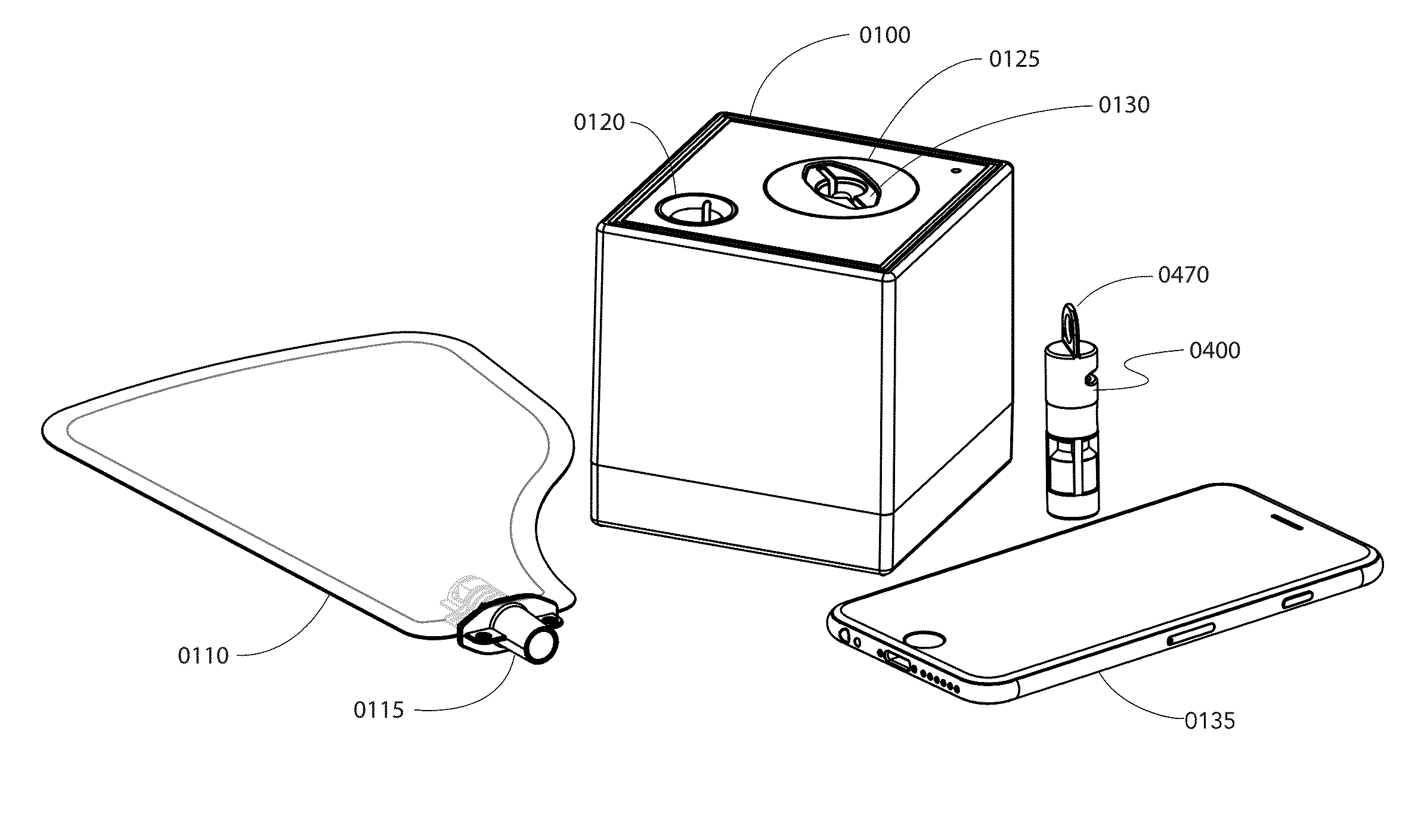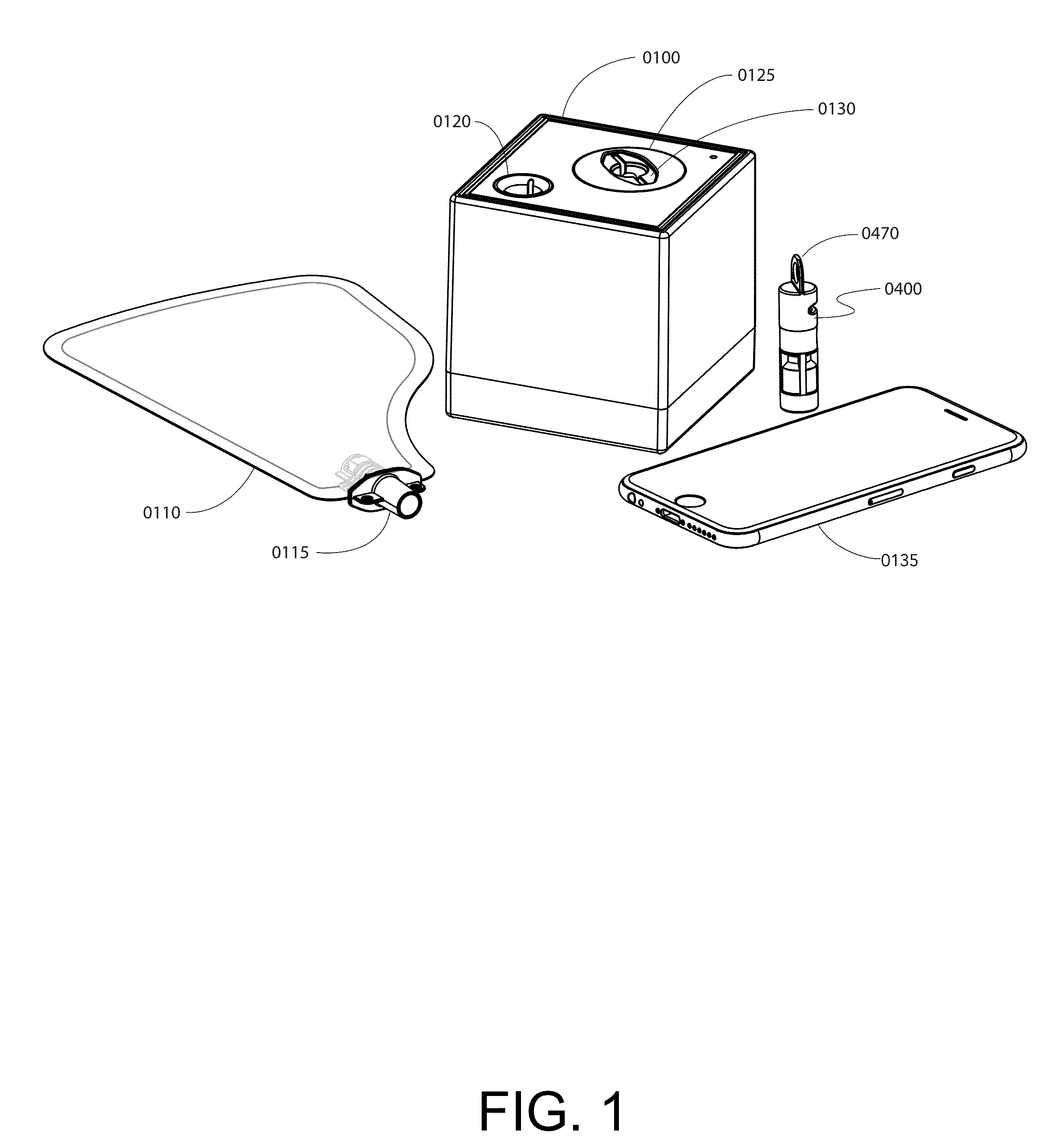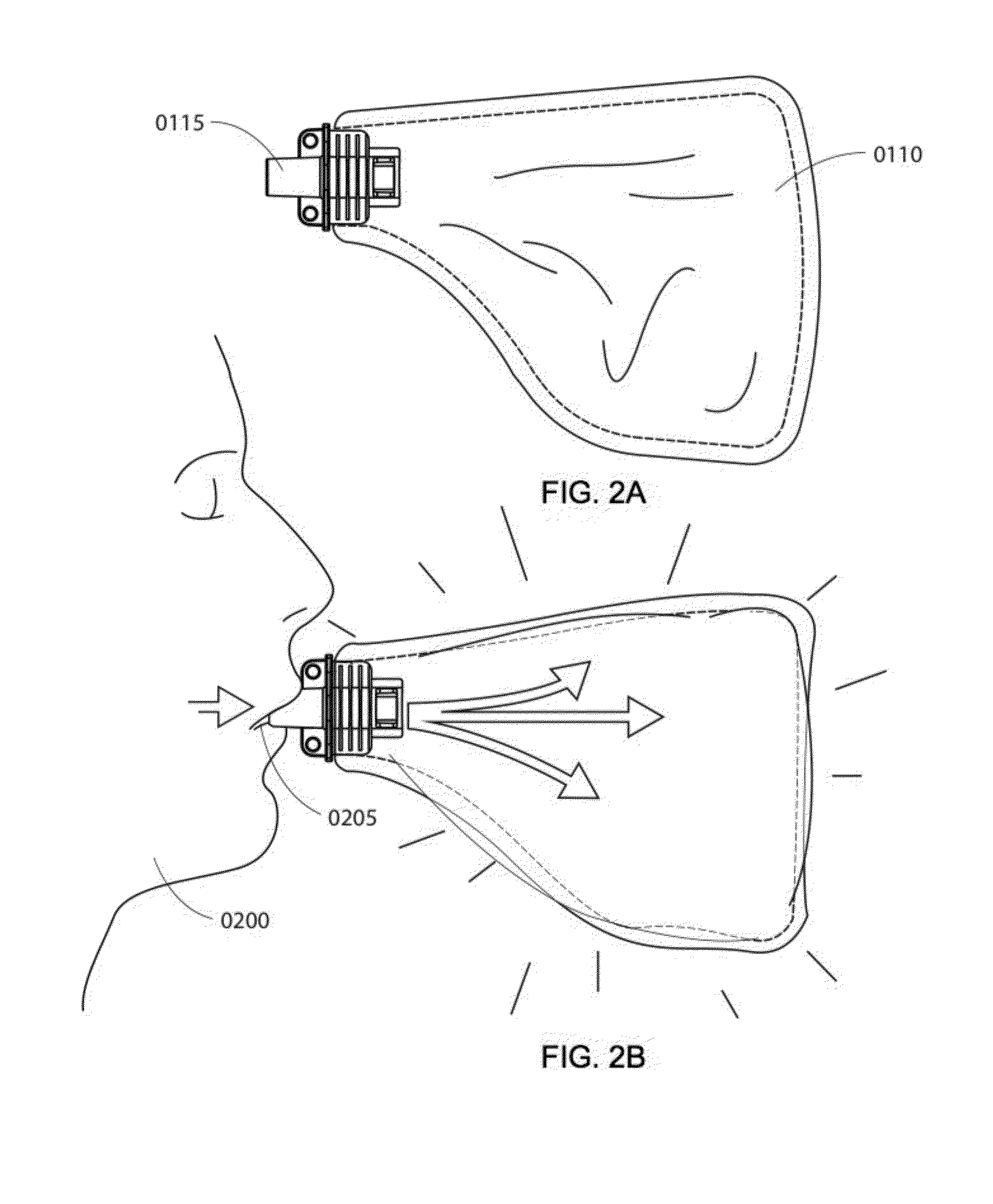Method and apparatus for rapid quantification of an analyte in breath
a breath analyte and rapid technology, applied in the field of breath analyte quantification systems, devices and methods, can solve the problems of ambient light affecting the composition of the cartridge, for example, chemical components, and achieve the effect of extending the effective working range of the analyzer
- Summary
- Abstract
- Description
- Claims
- Application Information
AI Technical Summary
Benefits of technology
Problems solved by technology
Method used
Image
Examples
example 1
[0470]Reactive chemistry for acetone is described.
[0471]Two sets of silica beads (130 mesh to 140 mesh) are coupled with either DEAPMOS or aminopropyltriethoxysilane (APTES). 3 g of silica beads are placed in a mixture of 8.1 mL 2-propanol, 1.2 mL 0.02N HCl, and 2.7 mL APTES or alternatively, 1.5 g of beads are placed in a mixture of 4.05 mL 2-propanol, 0.6 mL 0.02N HCl, and 1.35 mL DEAPMOS. Beads are vortexed for a few seconds and then allowed to rock for 10 min at room temperature. Then the beads are centrifuged briefly to pellet the beads at the bottom of the tube. The excess solution is decanted off, leaving the beads with enough DEAPMOS or APTES mixture to just cover them. Then the beads are incubated at 90° C. for 1 to 2 hrs, until they are completely dry. The DEAPMOS beads are further coupled to sodium nitroprusside (SNP). 3.75 mL of SNP solution (10% SNP, 4% MgSO4 in diH2O) are added to 1.5 g of DEAPMOS coupled beads, which is then rocked for 5 min at room temperature. The f...
example 2
[0473]Reactive chemistry for acetone is described.
[0474]A concentrated solution of DNPH is made by dissolving 20 mg of DNPH in 40 uL of concentrated sulfuric acid at 90 C for 5 to 10 min. 8 uL of this solution is added to 200 uL of propanol. 0.1 g of 130 to 140 mesh silica beads are added to the solution and after briefly vortexing, are incubated at 90 C for 1 hr until the beads are dry and free flowing.
[0475]Prepared beads are placed in a glass capillary (0.25″ long with a 2.7 mm inner diameter). 450 mL of breath sample in a tedlar bag is pumped across a CaCl2 pretreatment section (0.35″ long, 0.25″ id) and then the beads at 150 mL / min. A dark yellow stain, whose length is concentration dependent, indicates the presence of acetone.
example 3
[0476]Reactive chemistry for ammonia is described.
[0477]A concentrated bromophenol blue mixture is made by adding 0.1 g of bromophenol blue to 10 mL of propanol. After rocking for 1 hr, the mixture is ready for use. Not all the bromophenol blue will go into solution. From this stock solution, a 1:10 dilution is made in propanol. 200 uL of 0.1 N HCl are added to 4 mL of the 1:10 dilution and mixed. 1.8 g of 35 to 60 mesh silica beads with a 60 angstrom pore size are added to the mixture, vortexed and incubated at room temperature for 10 minutes. Then the beads are incubated at 80 C for 25 min. The liquid should have evaporated, but the beads should still stick together. At this point, the beads are placed under vacuum for 1 hour to finish drying. Aliquots (about 0.05 g / aliquot) are made and stored in a freezer or under vacuum.
[0478]Prepared beads are placed in a glass capillary (0.25″ to 1″ long with a 1.2 mm inner diameter). 900 mL of breath sample in a tedlar bag is pumped across a...
PUM
 Login to View More
Login to View More Abstract
Description
Claims
Application Information
 Login to View More
Login to View More - R&D
- Intellectual Property
- Life Sciences
- Materials
- Tech Scout
- Unparalleled Data Quality
- Higher Quality Content
- 60% Fewer Hallucinations
Browse by: Latest US Patents, China's latest patents, Technical Efficacy Thesaurus, Application Domain, Technology Topic, Popular Technical Reports.
© 2025 PatSnap. All rights reserved.Legal|Privacy policy|Modern Slavery Act Transparency Statement|Sitemap|About US| Contact US: help@patsnap.com



